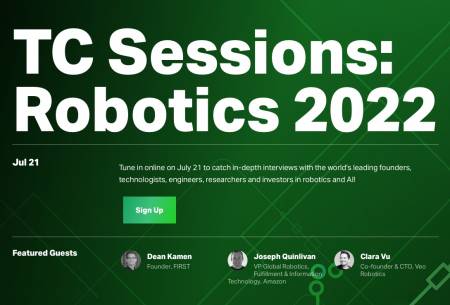Efficient 3D Representations: Algebraic Surfaces for Differentiable Rendering
Abstract: In this proposal, we show how some classic computer vision tasks can robustly be solved via optimization techniques by using an object representation that is compact and interpretable. Specifically, we explore the applications and benefits of representing 3D objects with an analytical, algebraic function by building an approximate, ray-based differentiable renderer. Our approximate formulation [...]
Carnegie Mellon University
Liquid Metal Actuators
Abstract: This thesis contributes to the field of soft actuators by introducing a generalized framework of actuators from liquid metals. The evolution of robotic actuators has enabled robots to achieve a diversity of motions. Like natural muscles, which converts chemical energy into mechanical work in response to electrical stimuli from the nervous system, actuators are [...]
Continual Robot Learning: Benchmarks and Modular Methods
Zoom Meeting Passcode: 841755 Abstract: The earliest reinforcement learning models were designed to learn one task, specified up-front. However, an agent operating freely in the real world will not in general be granted this luxury, as the demands placed on the agent may change as environments or goals change. We refer to this ever-shifting scenario [...]
Carnegie Mellon University
MSR Thesis Talk: Yash Oza
Title: Preprocessing-based Methods for Robotic Manipulation Abstract: Robotic manipulation is a key problem for several applications such as welding, pick-and-place, and automated assembly. However, motion planning for manipulation can be computationally expensive as it requires planning in the high-dimensional configuration space of the manipulator. Additionally, task-specific constraints such as strict time limits or constraints on end-effector [...]
Five Traps for Robots in Human Environments….And How to Avoid Them
Abstract: Robotics today is moving beyond fixed environments and into human spaces like homes, restaurants, and hospitals. In these new spaces, robots will necessarily have to interact with people. In some sense, every recent robotics problem is partly a human-robot interaction problem. Thus, the field of HRI can offer insights to the broader robotics community [...]
MSR Thesis Talk: Ingrid Navarro Anaya
Title: Socially-Aware Trajectory Prediction Guided by Motion Patterns Abstract: As intelligent robots across domains start collaborating with humans in shared environments, e.g., urban settings and terminal airspace, algorithms that enable them to reason over human motion and intent are important to enable seamless and safe interplay. In our work, we study human intent by focusing on the [...]
Carnegie Mellon University
MSR Thesis Talk: Qichen Fu
Date: Tuesday, July 19, 2022 Time: 9:00 AM - 10:00 AM ET Location: Newell-Simon Hall (NSH) 3305 Title: Detect Active Object in a Sequential Voting Process Abstract: A key component of understanding hand-object interactions is the ability to identify the active object -- the object that is being manipulated by the human hand. In order to accurately localize the [...]
Carnegie Mellon University
MSR Thesis Talk: Ruohai Ge
Title: Real-Time Visual Localization System in Changing and Challenging Environments via Visual Place Recognition Abstract: Localization is one of the fundamental capabilities to guarantee reliable robot autonomy. Many excellent Visual-Inertial and LiDAR-based algorithms have been developed to solve the localization problem. However, deploying these methods on a real-time portable device is challenging due to high [...]
TechCrunch Sessions: Robotics 2022
Matt Johnson-Roberson will be one of the featured speakers in TC Sessions: Robotics 2022 on Thursday, July 21. You can register and stream for free! From the TechCrunch event site: Where Minds Meet Machines: The Future of Robotics Rapid advances in robotics technology continue to change the way businesses compete — and how people work [...]
Carnegie Mellon University
MSR Thesis Talk – Zixuan Huang
Title: Seeing the Unseen: Closed-loop Occlusion Reasoning for Cloth Manipulation Robotic manipulation of cloth remains challenging due to the complex dynamics of cloth, lack of a low-dimensional state representation, and self-occlusions. Particularly, self-occlusion makes it difficult to estimate the full state of the cloth, which poses significant challenges to policy learning and dynamics modeling. Ideally, [...]



